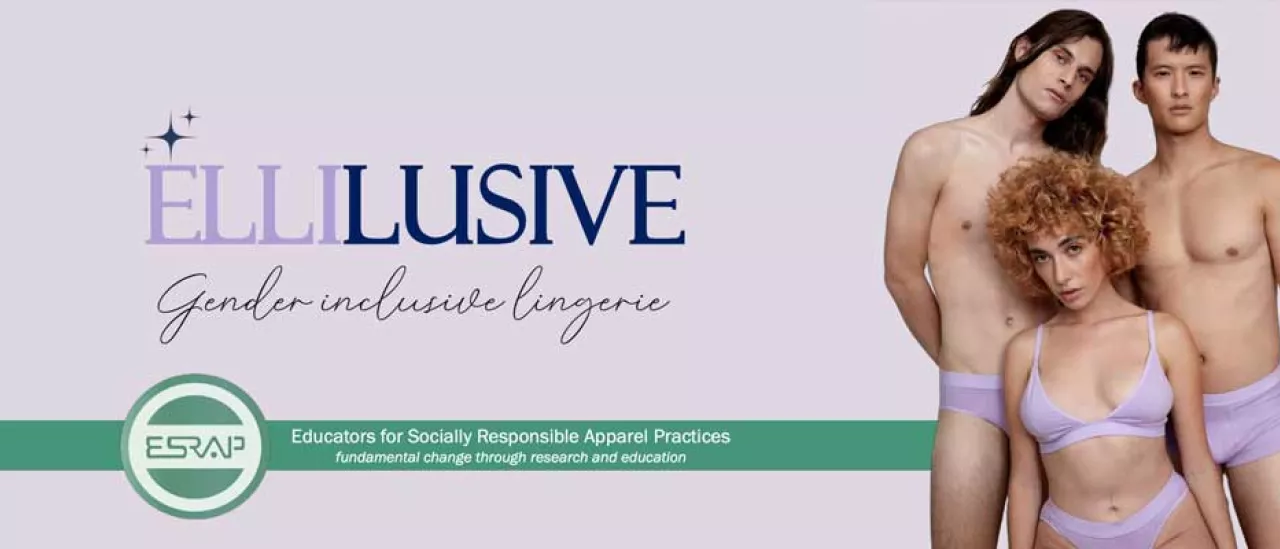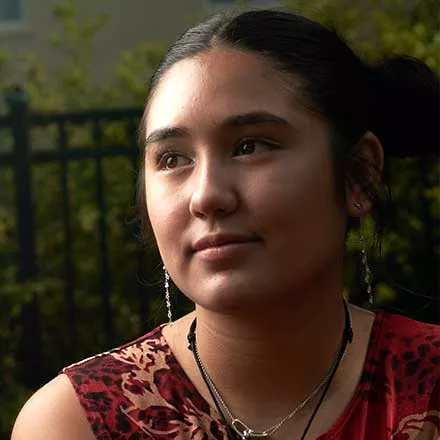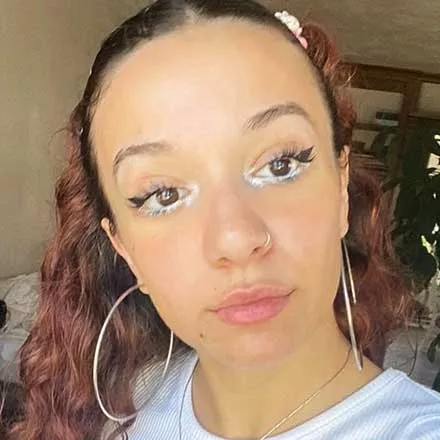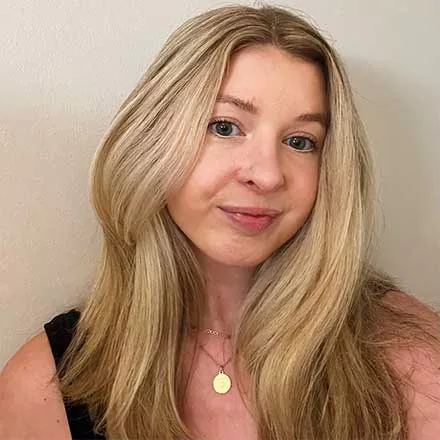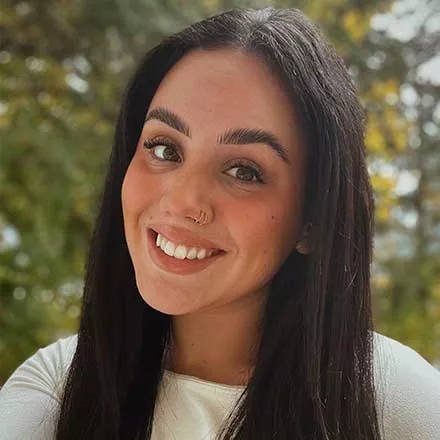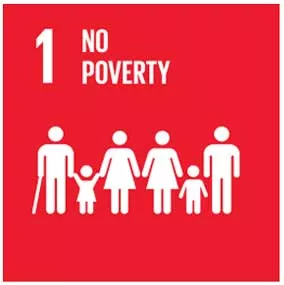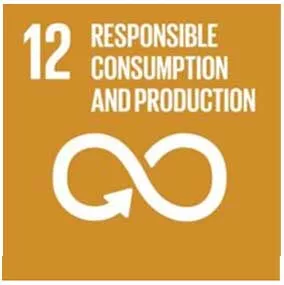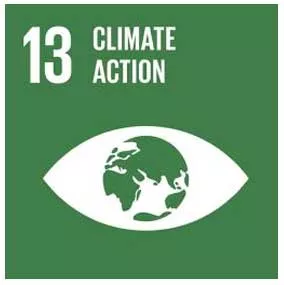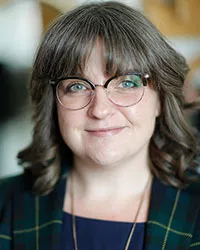Four SUNY Oneonta Fashion and Textiles students placed third in the 2023 Educators for Socially Responsible Apparel Production (ESRAP) Student Merchandising Competition. ESRAP’s competition is a global event that challenges undergraduate students to develop sustainable and socially responsible fashion retail business plans.
Abigail Julian ’24, Oriana Aponte Villazan ’24, Elizabeth Hastings ’23 and Layla Driscoll-Webster ’24 were part of the group that took third place in the 2023 ESRAP Competition. This is the third year SUNY Oneonta students have placed in the top three teams for the undergraduate competition, including the 2022 competition, where three SUNY Oneonta teams ranked among the top 10 competitors. Professors in the sustainable fashion field judged the first round of the ESRAP competition over the summer of 2023. Professionals in the fashion industry who work for VF Corporation, the parent company of prominent brands such as North Face, Levis and more, completed the second round of judging shortly after that.
“Crafting a business plan is no easy feat, so when my team and I encountered roadblocks, we had to think outside the box to devise solutions,” said Hastings, who is now a talent acquisition coordinator at Solomon Page. “Dr. Portway’s Fashion Entrepreneurship class helped me strengthen my problem-solving and communication skills and allowed me to think imaginatively alongside my team.”
Crafting the Business Plan
The group submitted a business plan for Ellilusive, a boutique that sells gender-inclusive undergarments and also offers a garment recycling and donation program. The students created their business plan in Dr. Sarah Portway’s spring 2023 Fashion Entrepreneurship course using the United Nations’ Sustainable Development Goals (SDGs) and triple-bottom-line framework.
In their Fashion Entrepreneurship course, the students developed a marketing strategy and analysis aligning with their sustainability strategy. They also created a customer persona, industry segment, competitive analysis, sourcing structure and financial plan for Ellilusive. The group submitted its business pitch virtually, along with a 90-second video pitch.
“Our business plan for the ESRAP competition was created with the two industry themes of fluid fashion and ‘Direct to Consumer’ reconnecting in mind, as they were stated in the Business of Fashion 2023 Report,” said Driscoll-Webster. “Once we did more research to prove our plan was a viable business opportunity, and that was when Ellilusive was created.”
The Ellilusive team found in its market analysis research that “roughly 17% of the nearly 3 million people in the city of Chicago are in the target customer’s age demographic,” according to information collected by the United States Census Bureau in 2021. The group also found that more than 60% of completed lingerie sales are through offline channels - and that Andersonville, Chicago, would be the best location for their store since it is known for “its communities’ attractions and LGBTQ+ community.”
“Our brick-and-mortar store, based in Andersonville, Chicago, would carry wholesale merchandise from non-gender-conforming brands,” said Hastings. “We chose our target customer because they represent a niche category in the lingerie/intimates market.”
Incorporating the United Nations SDGs
For their sustainability strategy, they created a business plan using the United Nations Sustainable Development Goals (SDGs) “No Poverty,” “Responsible Consumption and Production” and “Climate Action.” Through these SDGs, the Ellilusive team created a partnership plan with the Chicago Therapy Collective and The Bra Recyclers to create a re-use economy business model.
“Typically, fashion and sustainability don’t always go hand in hand, but ESRAP allowed us to incorporate these sustainable goals,” said Hastings. “Our label could help end poverty by providing a recycling program, help people practice responsible consumption and production by recycling our merchandise and combat climate change by not greenwashing.”
Specifically, their sustainability action plan would allow customers to drop off old underwear, bras and lingerie to the Chicago Therapy Collective to be recycled and sold at retail through The Bra Recyclers. In their presentation, the group cited that 95% of worn or torn textiles can be recycled, but only 15% are, while the remaining percentage ends up in landfills.
Insight into Fashion Entrepreneurship
In addition to participating in the ESRAP competition experience, Fashion and Textile majors receive industry insight when they take Dr. Portway’s Fashion Entrepreneurship course.
“Being in Dr. Portway’s Fashion Entrepreneurship course offered insight into the hardships and successes entrepreneurs face,” said Driscoll-Webster. “She provided additional information by sharing documentaries, bringing in guest speakers and bringing her personal experience to the class. She went out of her way to get our class unique industry insight to help us understand what it’s like to be an entrepreneur like no book ever could.”
